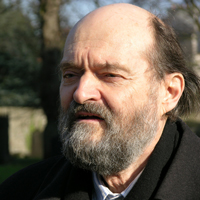
Pärt
Born: 1935
Died:
Arvo Pärt
One of the most popular of today's composers, Arvo Pärt has said, ‘I have discovered it is enough when a single note is beautifully played. This one note, or a moment of silence, comforts me.'
Explore Pärt's life and music...
Top 10 Arvo Pärt recordings
One of the most widely performed and recorded composers of our time has been well-served in the studio... Read more
Arvo Pärt – The Face of the Unknown
Peter Quantrill speaks to the composer who remains as much of an enigma as ever... Read more
An interview with Arvo Pärt and his closest musical collaborators
A classic interview from the September 1996 issue of Gramophone, by Nick Kimberley... Read more
Until 1980, Pärt’s music was unknown in the West. Now he is something of a cult. By the time he emigrated to Vienna and thence to Berlin in 1980, Pärt had already had two careers as a composer, composing in the 12-tone system and experimenting with collage techniques; while working as a technician for Estonian Radio (1958-67) he wrote over 50 film scores. He finally abandoned these methods and underwent a voluntary period of compositional silence, during which he meditated and studied religion. His music emerged quite differently: ‘I have discovered it is enough when a single note is beautifully played,’ he has said. ‘This one note, or a moment of silence, comforts me. I work with very few elements – with one voice, with two voices. I build with primitive materials – with the triad, with one specific tonality. The three notes of a triad are like bells. And that is why I call it tintinnabulation.’ The result is music of undramatic, uneventful, monk-like simplicity.

Gramophone Digital Club
- Digital Edition
- Digital Archive
- Reviews Database
- Full website access
From £8.75 / month
Subscribe
Gramophone Full Club
- Print Edition
- Digital Edition
- Digital Archive
- Reviews Database
- Full website access
From £11.00 / month
Subscribe
If you are a library, university or other organisation that would be interested in an institutional subscription to Gramophone please click here for further information.





